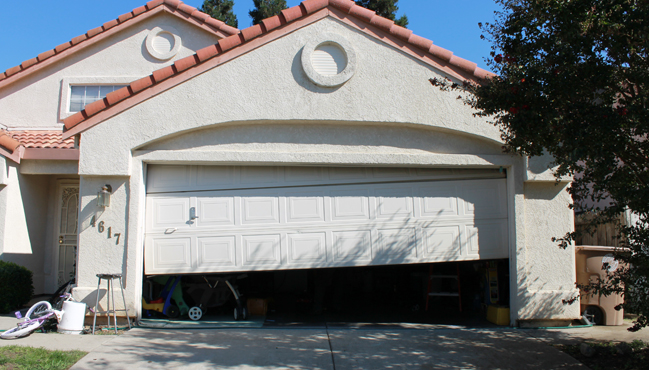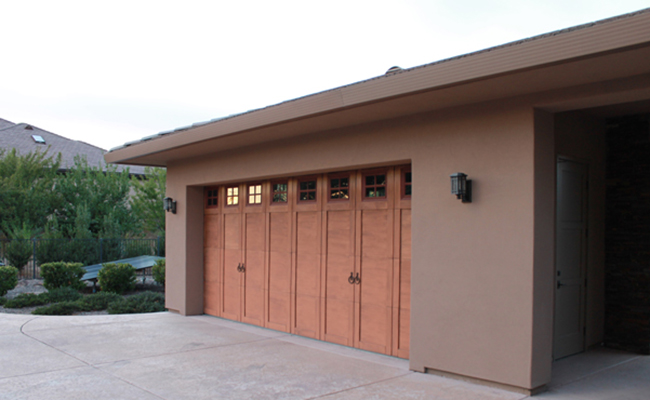In today’s fast-paced business world, commercial establishments rely heavily on efficient and secure infrastructure. One often overlooked aspect is the commercial garage door. While it might seem like a mundane part of any business, it plays a crucial role in ensuring the safety, functionality, and efficiency of various operations. In this article, we will delve into the world of commercial garage doors, exploring their types, benefits, maintenance, and factors to consider when choosing the right one for your business.
Introduction to Commercial Garage Doors
What Are Commercial Garage Doors?
Commercial garage doors are robust, heavy-duty doors designed specifically for industrial and commercial applications. They are not just larger versions of residential garage doors; they are engineered to withstand heavy usage and provide added security to commercial establishments. These doors are typically used in warehouses, factories, auto repair shops, and loading docks.
Types of Commercial Garage Doors
Commercial garage doors come in various types, each catering to different needs and preferences. Here are some common types:
Rolling Steel Doors
Rolling steel doors are known for their durability and security. They consist of interlocking slats that roll up and down, making them ideal for spaces with limited headroom. These doors are often chosen for their ability to provide both security and insulation.
High-Speed Doors
High-speed doors are designed for businesses that require rapid access to their garages. These doors are known for their efficiency and ability to maintain controlled environments. They are often used in facilities where temperature control is critical.
Benefits of Commercial Garage Doors
Enhanced Security
One of the primary benefits of commercial garage doors is the enhanced security they provide. They are built to withstand forced entry attempts and can be equipped with advanced locking systems, ensuring that your valuable assets are well protected.
Energy Efficiency
Commercial garage doors can contribute to energy efficiency by providing insulation and minimizing heat loss. This is especially important in spaces where temperature control is crucial, such as cold storage facilities.
Increased Productivity
Efficient garage doors can significantly improve productivity in a commercial setting. They allow for quick and easy access, reducing downtime and improving workflow. High-speed doors, in particular, excel in this regard.
Factors to Consider When Choosing a Commercial Garage Door
Size and Dimensions
The size of your commercial garage door should match the dimensions of the vehicles or equipment it needs to accommodate. Choosing the wrong size can lead to operational inefficiencies.
Material and Durability
Selecting the right material for your garage door is essential. Common materials include steel, aluminum, and fiberglass. Consider factors like durability, insulation, and resistance to weather conditions when making your choice.
Insulation and Weather Resistance
If your business involves temperature-sensitive operations, invest in insulated garage doors. These doors can help maintain a consistent internal temperature, reducing energy costs.
Maintenance and Care Tips
Regular Inspections
Frequent inspections of your commercial garage door are essential to identify and address potential issues promptly. Look out for signs of wear and tear, rust, or malfunctioning components.
Lubrication and Cleaning
Keep the door’s moving parts well-lubricated to ensure smooth operation. Clean the door and its components regularly to prevent debris buildup.
Professional Servicing
Schedule regular professional servicing to ensure that your commercial garage door functions optimally. Experienced technicians can identify and resolve problems you might miss during routine inspections.
Installation Process
DIY vs. Professional Installation
While some may consider a DIY approach to garage door installation, it’s often advisable to hire professionals. They have the expertise and tools required to ensure a safe and proper installation.
Safety Measures
Safety should be a priority during installation. Ensure that safety features like sensors and emergency release mechanisms are correctly installed and functioning.
Cost Analysis
Initial Investment
The initial cost of a commercial garage door may vary depending on its type and features. Consider this investment as a long-term asset that enhances your business’s security and efficiency.
Long-term Savings
While the upfront cost may seem significant, commercial garage doors can lead to long-term savings through improved energy efficiency and reduced maintenance expenses.
Case Studies
Success Stories of Improved Efficiency
Explore real-life case studies of businesses that have benefited from upgrading their commercial garage doors. These stories highlight the positive impact on security, energy efficiency, and productivity.
Conclusion
In conclusion, commercial garage doors are an integral part of any business’s infrastructure. They offer enhanced security, energy efficiency, and increased productivity. When choosing a commercial garage door, consider factors like size, material, insulation, and maintenance. Invest wisely, and your commercial garage door will prove to be a valuable asset for your business.
FAQs
Commercial garage door dimensions vary, but common sizes range from 8×8 feet to 16×16 feet, depending on the needs of the business.
Enhance security by using advanced locking systems, security cameras, and regular maintenance.
Yes, some commercial garage doors are made from eco-friendly materials and offer energy-efficient insulation.
While it’s possible for experienced individuals, professional installation is recommended for safety and reliability.
The lifespan varies depending on usage and maintenance, but well-maintained doors can last 20 years or more.








